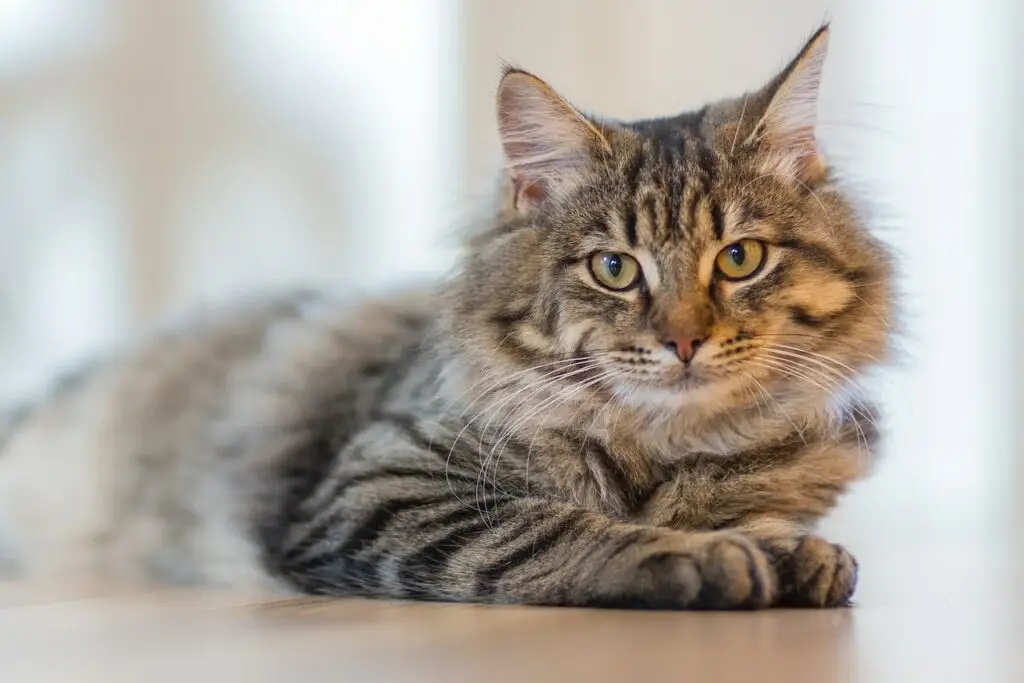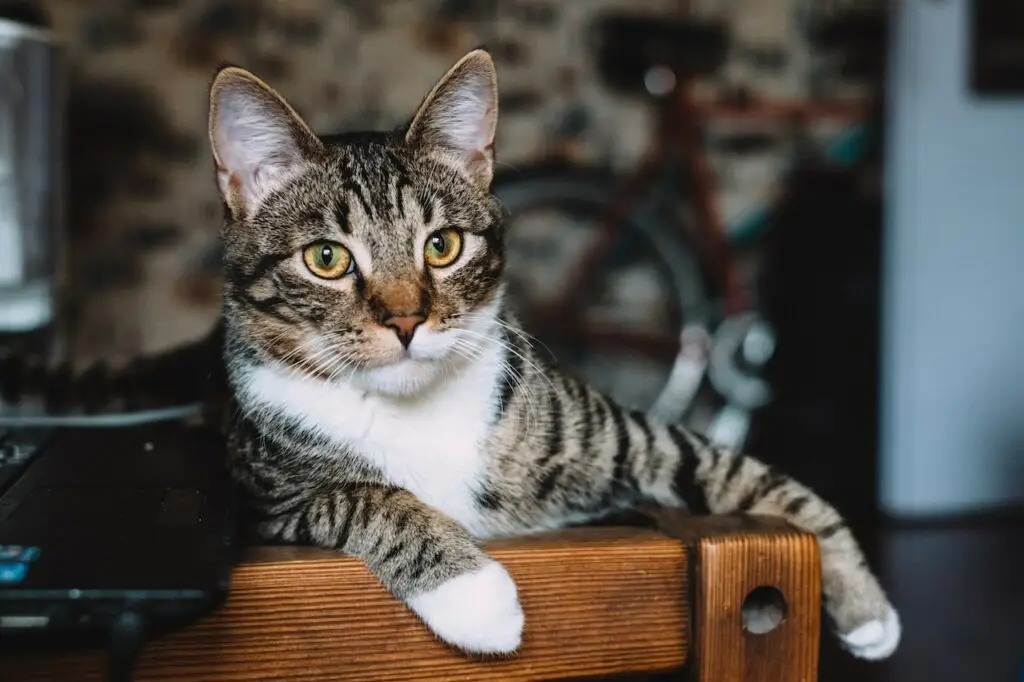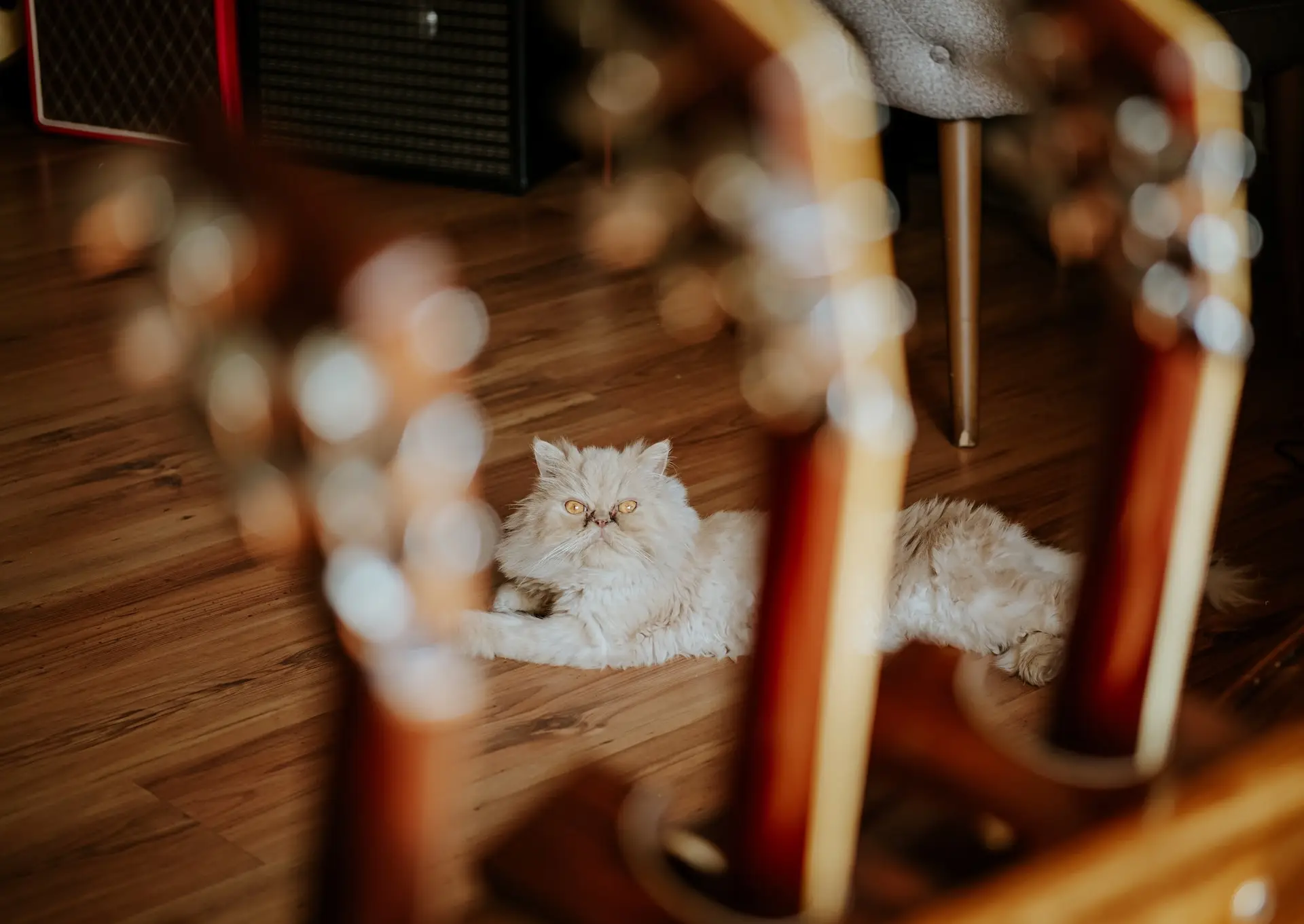When you think of music lovers, your meowing furry friend might not be the first to come to mind. But have you ever wondered if your cat enjoys a good tune? Contrary to popular belief, cats have a unique relationship with music that’s worth exploring. In this article, we’ll delve into the fascinating world of cats and music and try to understand whether they like music, if music benefits cats, and if they have genuine musical preferences. Let’s hear it!
A Purrfect Perspective: How Cats Hear Music
To understand whether cats enjoy music, it’s essential to grasp how they perceive sound. Cats have an incredible sense of hearing, surpassing that of humans. While the human hearing range typically spans from 20Hz to 20,000Hz, cats can hear sounds from 48Hz to 85,000Hz. This means they can detect ultrasonic frequencies that are beyond our hearing capabilities.

So, when you play music for your cat, remember that they might perceive nuances and subtleties in the sound that you can’t. Their ability to detect high-pitched sounds, such as the rustling of a mouse or the flutter of a bird’s wings, is an adaptation honed by evolution to aid in hunting.
Scientific Serenades: Studies on Cats and Music
Curiosity about whether cats enjoy music or benefit from it has prompted several studies in recent years. While cats can’t provide direct feedback like humans, researchers have used behavioral cues to see their reactions.
One notable study published by “Sage Journals” played a variety of music genres to hospitalized cats. They played classic music, music specifically made for cats, and no music at all. The overall findings suggested that music did have some benefit to the cats! Meanwhile, another study showed that cats prefer species-appropriate music to regular human music.

However, it’s essential to interpret these findings with caution. Individual cat preferences can vary widely, and factors like previous exposure to music and the cat’s temperament can influence their reactions.
Purrsonal Tastes: Do Cats Have Musical Genre Preferences?
Just as humans have diverse musical tastes, cats may also have their preferences. Some cats might respond more favorably to classical music, while others may be indifferent or even averse. On the other hand, with its improvisational and soothing qualities, jazz might resonate with some feline ears.
If you’re curious about your cat’s musical preferences, experimenting with different genres is worth seeing how they react. Pay attention to their body language and behavior to evaluate their level of comfort or excitement.

Deciphering the Feline Melody: How to Tell If Your Cat Likes a Song
Your cat might be unable to provide verbal feedback on their musical preferences, but they communicate through body language. Here are some signs that can indicate whether your cat is enjoying the music:
- Purring: If your cat starts purring while music plays, it’s a good sign that they are content and relaxed.
- Relaxed Posture: A cat lying down with its eyes half-closed is likely enjoying the music’s soothing effects.
- Curious Ears: Cats often prick their ears forward when interested in something. If your cat does this while music is playing, they might be tuning in.
- Kneading: Some cats knead their paws when they’re content. If they do this while music is playing, it’s a positive sign.
- Approaching the Speaker: If your cat seems to be investigating or listening to the source of the music attentively, they might be enjoying it.
- No Signs of Stress: Make sure your cat doesn’t display signs of stress, such as flattened ears, dilated pupils, or hiding when playing music. Changing the theme or turning it off is a good idea if they do.

Cat-Approved Concert: Tips on Playing Music for Cats
If you want to create a harmonious atmosphere for your feline friend, here are some tips for playing music that your cat might enjoy:
- Classical and Soft Melodies: Start with classical or soft, melodic tunes. These often have a calming effect on cats. You can find specially curated playlists of music designed for cats online.
- Volume Control: Keep the volume at a level that won’t startle or stress your cat. Cats have sensitive ears, so be mindful of their comfort.
- Background Music: Consider playing music in the background during activities like grooming or naptime. This can create a soothing ambiance.
- Observe and Adjust: Listen to your cat’s reactions and adjust the music accordingly. If they seem agitated, switch to something quieter or turn it off.
- Create a Routine: Cats thrive on routines. Establishing a routine of playing music at certain times of the day can help your cat associate music with positive experiences.
Wrapping Up
In the end, the question of whether cats enjoy music doesn’t have a one-size-fits-all answer. Cats, like humans, have individual preferences, and their reactions to music can vary widely. However, many cats seem to enjoy calming and melodic tunes, suggesting that music can be a source of pleasure for them. So, the next time you catch your furry friend swaying their tail to a sweet melody, you’ll know they’re savoring their musical journey.





